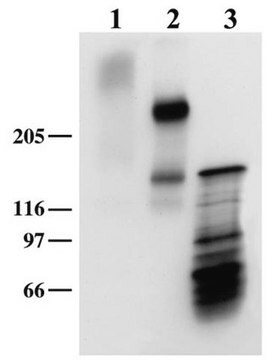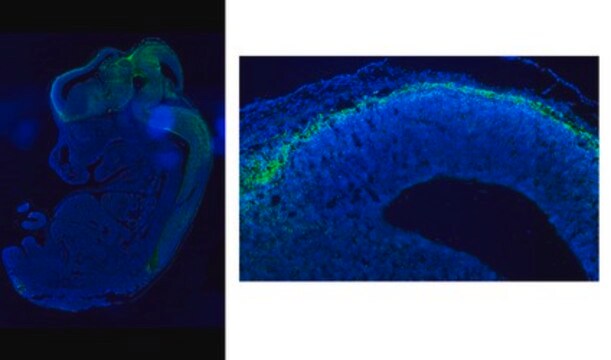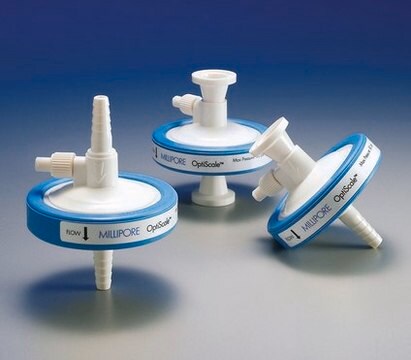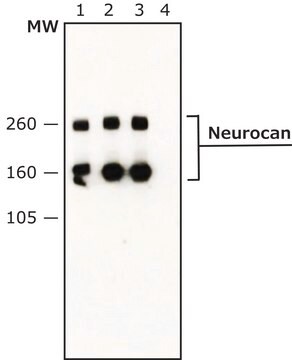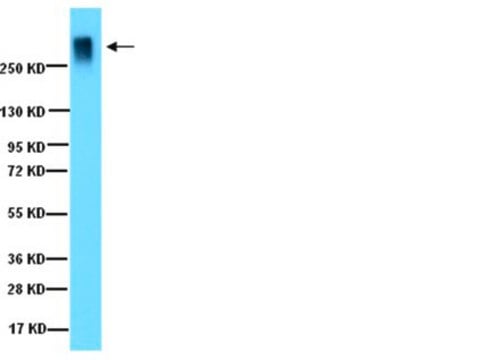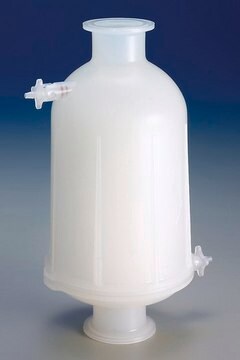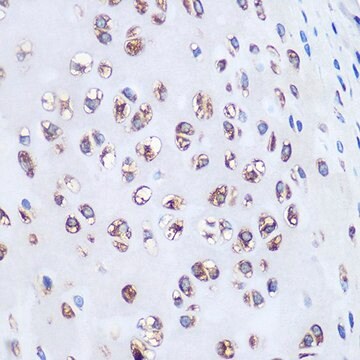MAB5212
Anti-Neurocan Antibody, clone 650.24
clone 650.24, Chemicon®, from mouse
Sinonimo/i:
245 kDa Early Postnatal Core Glycoprotein
About This Item
Prodotti consigliati
Origine biologica
mouse
Livello qualitativo
Forma dell’anticorpo
purified immunoglobulin
Tipo di anticorpo
primary antibodies
Clone
650.24, monoclonal
Reattività contro le specie
rat
Produttore/marchio commerciale
Chemicon®
tecniche
immunocytochemistry: suitable
immunohistochemistry: suitable
immunoprecipitation (IP): suitable
western blot: suitable
Isotipo
IgG1
N° accesso NCBI
N° accesso UniProt
Condizioni di spedizione
wet ice
modifica post-traduzionali bersaglio
unmodified
Informazioni sul gene
human ... NCAN(1463)
Descrizione generale
Specificità
Immunogeno
Applicazioni
Neuroscience
Neuroregenerative Medicine
Growth Cones & Axon Guidance
Immunocytochemistry: 1:5
Immunohistochemistry on 4% paraformaldehyde fixed tissue: 1:1,000
Immunoprecipitation: 1-2 μg/mL
Optimal working dilutions must be determined by the end user.
Stato fisico
Stoccaggio e stabilità
Risultati analitici
POSITIVE CONTROL:
early post-natal rat brain. Not expressed in kidney, lung, liver, or muscle.
Altre note
Note legali
Esclusione di responsabilità
Non trovi il prodotto giusto?
Prova il nostro Motore di ricerca dei prodotti.
Codice della classe di stoccaggio
10 - Combustible liquids
Classe di pericolosità dell'acqua (WGK)
WGK 2
Punto d’infiammabilità (°F)
Not applicable
Punto d’infiammabilità (°C)
Not applicable
Certificati d'analisi (COA)
Cerca il Certificati d'analisi (COA) digitando il numero di lotto/batch corrispondente. I numeri di lotto o di batch sono stampati sull'etichetta dei prodotti dopo la parola ‘Lotto’ o ‘Batch’.
Possiedi già questo prodotto?
I documenti relativi ai prodotti acquistati recentemente sono disponibili nell’Archivio dei documenti.
Il team dei nostri ricercatori vanta grande esperienza in tutte le aree della ricerca quali Life Science, scienza dei materiali, sintesi chimica, cromatografia, discipline analitiche, ecc..
Contatta l'Assistenza Tecnica.